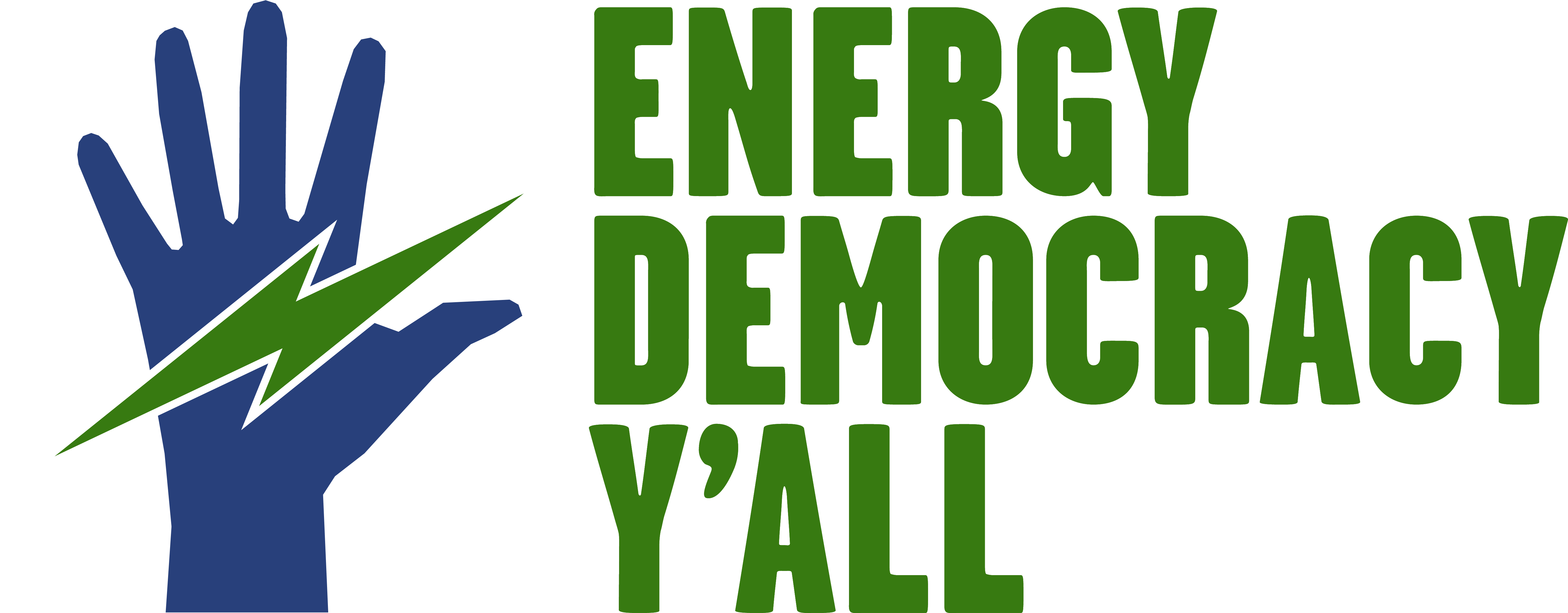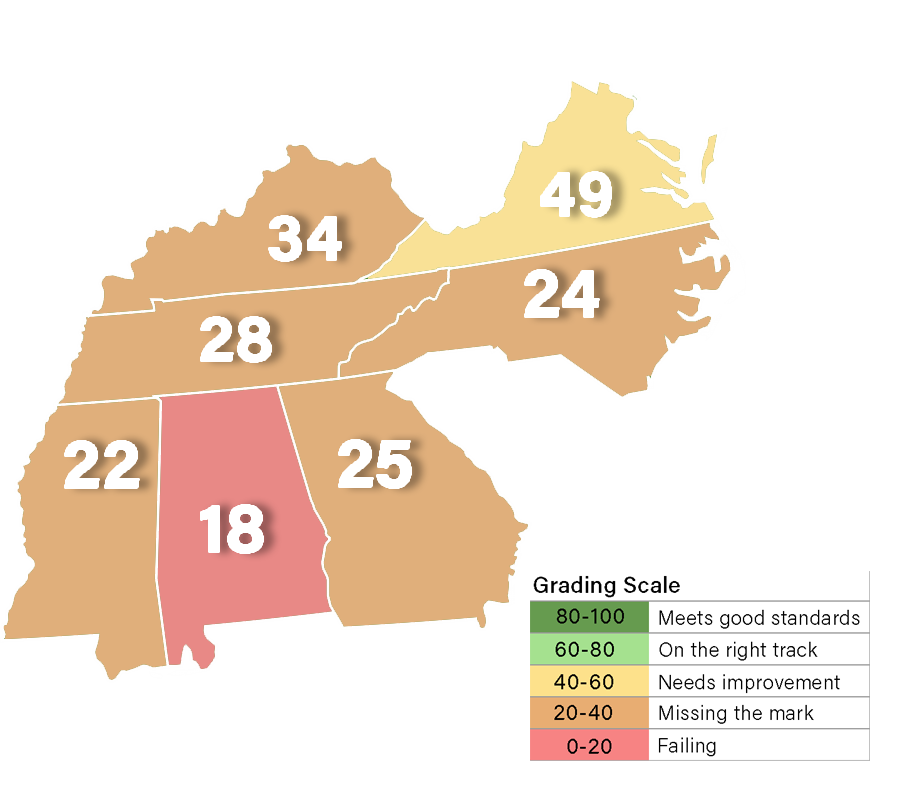Southeast Electric Co-op Scorecards
Rural electric cooperatives were created during the 1930s and 40s to bring electricity to rural communities. Co-ops continue the legacy of bringing essential electricity, and sometimes even communication services like broadband, to their members today.
The Southeast Electric Co-op Scorecard is a tool developed by organizations from seven Southeastern states to grade electric cooperatives on their energy efficiency, transition to renewable energy, modernization, governance, and efforts to reduce the financial burdens of home energy costs for low-wealth members.
We’ve included a handy lookup tool for individual co-ops, state-wide comparisons, and also some key takeaways.
Key Takeaways
- Electric co-ops lack democratic governance policies. The majority of co-ops have not codified in their bylaws the right of members to attend and speak at regular board meetings, or to amend the co-op bylaws. Of the 173 electric co-ops serving our seven-state region, only Pontotoc EMC (MS) makes it possible for members to fully engage in board meetings and to stay up-to-date with proceedings of its board. Co-ops should also ensure accessible, transparent, fair and independently administered board elections, as modeled by North Georgia EMC (GA) and Shenandoah Valley Electric Cooperative (VA).
- Electric co-ops need to be transparent. Many Southeastern co-ops, which are not usually subject to sunshine laws, don’t make information about their finances, board meetings, policies and programs readily accessible to member-owners. Co-ops should make this information more accessible, including on their websites and/or on member electric bills where appropriate. Appalachian Electric (TN), Blue Ridge Electric (NC) and Cobb EMC (GA) model updated, user-friendly websites that provide a wealth of resources and information to their members.
- Electric co-ops must address high energy burdens. The average low-income household served by electric cooperatives in the Southeast spends 10.9% of its income on home energy costs, which far exceeds the threshold for an affordable energy burden. Despite this problem, few electric co-ops in the region offer inclusive, “Pay As You Save (PAYS®)” on-bill financing for energy efficiency and customer-owned rooftop solar, which is a debt-free financing model accessible to everyone, including low income members and renters. PAYS is a proven way to benefit members by lowering energy bills and improving home comfort. This approach has been adopted by leading co-ops in the region, including Roanoke Electric (NC) and Rappahannock Electric (VA). All co-ops should take immediate steps to implement on-bill financing for energy efficiency and rooftop solar.
- State policy is critical. Legal mandates can have a major influence on the services provided by electric cooperatives. MS and AL co-ops that performed best on member services earned just half the points of the top-scoring co-op in this category, Rappahannock Electric Cooperative (VA). This difference can be accounted for by poor net-metering policies, few community/shared solar programs, and little energy efficiency financing in Mississippi and Alabama, while Virginia law requires or enables co-ops to pursue these programs.
Note for the Reader Regarding Racial Representation and Equity:
*Recognizing the importance of representation and its impact on equitable energy policy, an analysis of racial demographics across this sample of electric cooperatives is forthcoming.








